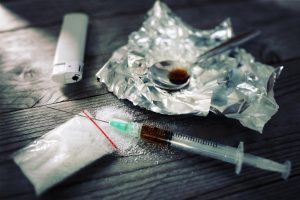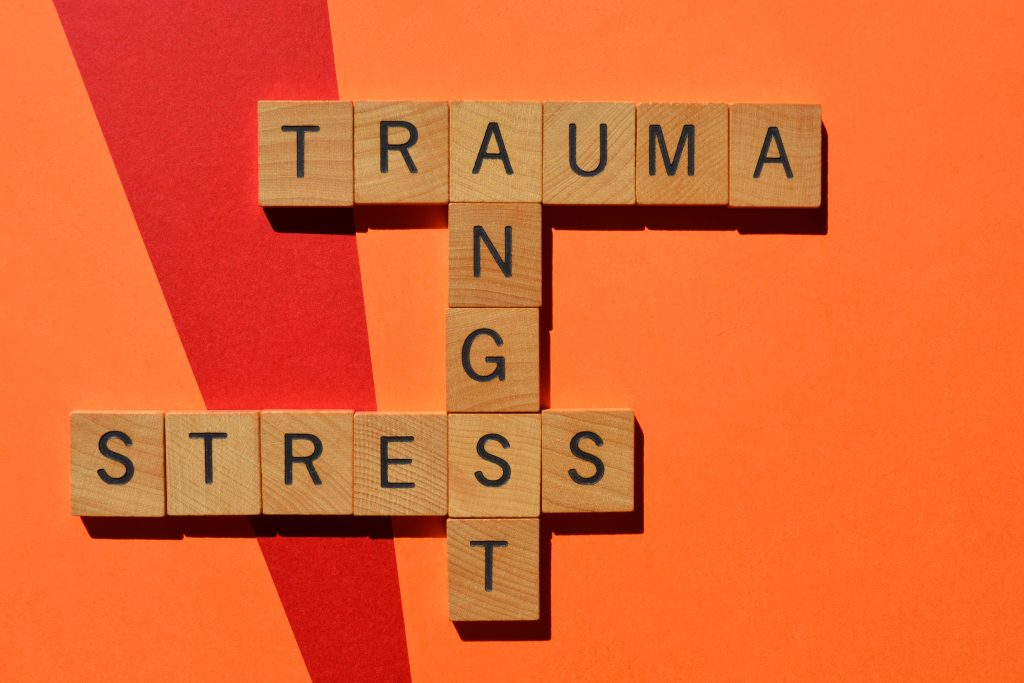Did you know that 75% of people struggling with substance abuse have a history of trauma? Those who experience trauma early in life are four times at risk of substance abuse.
This risk can increase tenfold for those who experience multiple or recurrent traumatic events. Based on these statistics, there must be a link between trauma and the likelihood of substance abuse.
Since the two problems are closely interconnected, treating substance abuse alone without considering underlying trauma will be futile. It is crucial to seek help from a reputable source with the resources for comprehensive treatment.
Read this post to understand the importance of incorporating trauma in substance abuse treatment.
What Is Trauma?
Trauma refers to the physical, psychological, and emotional stress that people may endure after going through traumatic or life-threatening experiences.
The long-term impacts of trauma can affect a person’s mental health and general well-being if they are not treated. Traumatic incidents can include:
- Physical, sexual, or emotional abuse
- Accidents and injuries
- Witnessing acts of violence
- Natural disasters
- Combat or warfare
- Severe injury or illness
- Sudden death of a loved one
It’s crucial to remember that everyone responds to trauma differently. Some may have more difficult responses than others based on the nature of the situation and how they handle it.
Signs of Trauma
Individuals who have experienced childhood trauma manifest various psychological and behavioral side effects. Sometimes, your brain might try to cope with trauma by masking it, but the symptoms eventually emerge.
Some of the symptoms you might experience after a traumatic event include:
- Fear and anxiety
- Flashbacks
- Nightmares
- Anger or irritability
- Depression
- Mood swings
- Eating disorders
- Lack of confidence
- Isolation from friends and family

These symptoms may linger for weeks, months, or even years after the traumatic experience. Unfortunately, distressful feelings may significantly interrupt a person’s life, so they may turn to substances to ease their emotional pain.
While substance use temporarily relieves negative emotions linked with trauma, it eventually causes further problems that can adversely affect your health and pose life-threatening consequences.
The Link Between Trauma and Substance Abuse
The human brain is one of the most complex and adaptive organs. Thanks to the plasticity characteristic, your brain can react and adapt to any life experience.
This ability influences all aspects of your life, enabling you to learn new skills and make memories as you move across the world.
Every experience, whether good or bad, influences the growth, change, or deterioration of the brain’s neurons based on the necessary changes to keep your body functioning. That explains why traumatic brain injury patients can relearn skills like speaking and working.
You may wonder, how is this related to trauma and substance abuse recovery?
Plasticity is why your experiences early in life follow you into adolescence and adulthood. They shape your thoughts, behavior, and response to people and situations.

Regarding trauma and substance abuse, childhood trauma could be the reason behind structural abnormalities in the brain.
Generally, childhood trauma is associated with higher cortisol and other stress hormone levels, which hampers normal brain development. This, in turn, may result in various cognitive and behavioral problems.
Post-traumatic stress disorder (PTSD) is one of the long-term mental health problems that trauma may cause. Unfortunately, this trauma may have individuals turning to drugs as a coping mechanism.
Research shows that up to two-thirds of individuals suffering from substance abuse had some kind of traumatic experience during their childhood.
How Trauma Can Trigger Substance Abuse
Trauma and trauma-related mental health issues, such as PTSD, often trigger substance abuse. But how does this happen?
Generally, individuals scarred by a traumatic experience turn to alcohol or drugs to cope with the guilt or fear that engulfs them. This is known as self-medication.
They use alcohol or drugs to manage the distress caused by the traumatic event such as painkillers, pot, or benzodiazepines. These substances offer temporary relief by numbing the emotional pain or helping the person escape the troubling thoughts for some time.
Unfortunately, these substances eventually wear off. When they do, the person experiences low moods and sometimes withdrawal symptoms.

Such symptoms may worsen the impacts of traumatic disorders, bringing the person to use the drugs again to bring back the positive effects. Usually, this is where the addiction cycle starts.
Research shows that about 75% of adolescents with substance use disorders started using drugs after traumatic exposure. Younger people tend to turn to drugs to feel better since they don’t know how to cope with their experiences.
Research also shows that children who experience more than four traumatic events earlier in life are five times more likely to abuse alcohol and 46 times more likely to use injection drugs than the general public.
This evidence proves the direct relationship between trauma and substance abuse.
Substance Abuse Can Be a Risk Factor for Trauma
The cycle of addiction is not always brought about by trauma. Substance abuse may sometimes end in a traumatic event in a person’s life.
Substance abuse can lead to risky behaviors like violence, unprotected sex, and impaired driving. These risky behaviors are sometimes followed by traumatic outcomes such as sexual assault, severe injury, and car accidents, to name a few.
For many, such traumatic experiences can result in long-term psychological consequences that may increase their risk of substance abuse.
Consider this scenario. A college student is sexually assaulted after being blacked out drunk. Or, a teenager drives when high and causes an accident that kills the other driver.

Any of these individuals could live with painful memories throughout their lives from these traumatic incidents, memories that exacerbate their grief, anxiety, and distress.
According to research, young people who already abuse addictive substances are less capable of dealing with traumatic events brought on by their drug use (like a drunk driving accident).
Teenagers with substance use disorders are twice likely to develop PTSD after a traumatic event than their sober peers.
Dual Diagnosis: PTSD and Addiction
You are said to have a dual diagnosis or co-occurring disorder if you have PTSD and substance addiction.
PTSD is not limited to people who have served in the military, but research shows that 35-75% of veterans with PTSD abuse substances to cope with their experiences.
People with PTSD also tend to use substances to manage their triggers and manage their symptoms, including:
- Agitation
- Depression
- Insomnia
- Social withdrawal
- Hypersensitivity
Based on the symptoms, you may turn to drugs to self-medicate. Unfortunately, this approach doesn’t work, and ultimately, you develop a tolerance to their preferred drug, leaving you in worse shape than before.
This cycle enables the relationship between trauma and substance abuse. Any person with a substance use disorder and a mental health disorder, such as anxiety, depression, or schizophrenia, has a dual diagnosis.
Treatment centers must address the addiction and the underlying trauma for effective dual-diagnosis treatment. This might entail analyzing all triggers associated with the trauma.
While addressing trauma in substance abuse treatment is key in a dual diagnosis, identifying the trauma or triggers is nearly impossible when you still abuse the substances.
Addressing Trauma in Substance Abuse Treatment
Not everyone who has faced trauma will eventually develop an addiction to drugs or alcohol. However, those caught in the substance abuse cycle may
However, those stuck in a pattern of substance abuse could feel guilty and humiliated. Luckily, these individuals can get help. They can learn critical coping mechanisms to better their physical and mental health from specialists trained in treating trauma and addiction.
Overcoming trauma in substance abuse treatment usually calls for participation in trauma therapy programs. Counselors and doctors in these programs can adopt a combination of various therapies to help patients cope with the trauma and achieve long-term recovery.
One of these programs is cognitive-behavioral therapy (CBT), which enables people to recognize thought patterns that encourage addictive behaviors.

Other therapies and approaches that can assist patients in overcoming unhealthy coping mechanisms, managing stress brought on by traumatic experiences, and quitting substance use include:
- Traditional psychotherapy
- Group therapy
- Medication-assisted treatment
- 12-step programs
Professional treatment can benefit individuals struggling with substance abuse and underlying trauma.
Trauma-Informed care
Since trauma and substance abuse are co-occurring disorders, they must be treated simultaneously to increase the chances of recovery.
Trauma-informed care takes an integrated approach that targets the person rather than simply the symptoms linked with trauma and substance abuse. Healthcare providers who offer trauma-informed treatment have received the necessary training and education in trauma.

They know that people who have experienced trauma may use addictive substances as a coping mechanism or a means of survival. These experts can help survivors feel empowered and optimistic about recovery while also helping them establish appropriate coping skills to deal with trauma.
Trauma-informed care fosters a thorough treatment approach and increases the chances of a positive outcome.
Start Your Journey to Full Recovery Today!
You didn’t just wake up and decide to start using drugs. Even if you may not beware of it, you are likely abusing substances to deal with the emotions associated with a traumatic incident you encountered in the past.
You no longer have to be ashamed, sad, or angry with yourself. Help is available for you if you are ready to accept treatment.
At CCIWA, we can help you get the help you need by linking you to an experienced mental health professional.
Our partner mental health experts will help you deal with your trauma, treat your addiction, and you can start living a happy, fulfilling life.
Contact us at (888) 217-1376 to begin your treatment journey t



